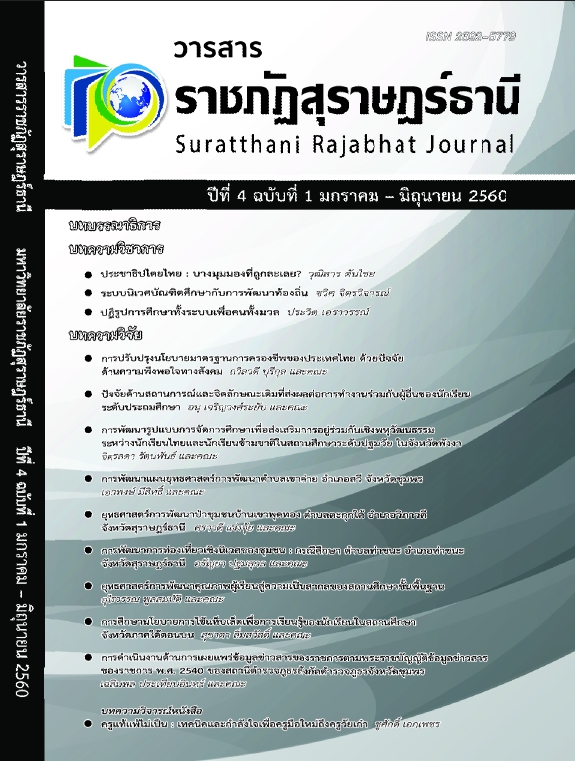Education Reform for All
Main Article Content
Abstract
Thailand’s education has been exceedingly changed in the past decade due to the announcement of the National Education Act B.E.2542 leading to office merger, new office establishment and budget allocation. In spite of the intention to reform education with the purpose of the improvement of quality of people’s life, outcomes have not been visibly achieved. On the contrary, the results of national and international education evaluation were worrying as the education systems were most designed by the government as well as the separated policies or problem solutions. Consequently, these including other former education factors and conditions have not yet affected the overall education quality.
The new educational system and mechanic design should provide a new fundamental cluster relevant to the educational objectives of developing Thai citizens completely, encouraging them to learn themselves, and giving educational opportunities for the quality and honor of humans.
The education reform should primarily focus on the structure enabling to establish the responsibility to the outcomes. Then, financial measure should be used for educational expense specification and budget allocation directly to learners or other educational beneficiaries. Additionally, learning management should be well constructed for all people in order to build up the potential and life-long learning for better quality of life and honest livelihood.


